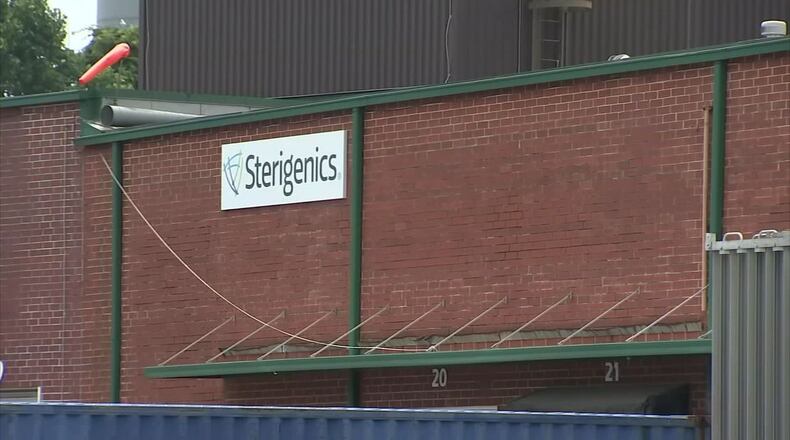A Cobb State Court judge on Monday ruled that hundreds of residents allegedly affected by emissions of a cancer-causing chemical can sue the landlord of a medical sterilization facility for potential damages.
The ruling came swiftly following a Friday hearing at which the landlord, Prologis, argued that it couldn’t be held liable for the emissions of its long-time tenant Sterigenics, which sterilizes medical equipment at a plant near Smyrna.
The gas used in the sterilization process, ethylene oxide, in 2016 was re-classified by the Environmental Protection Agency as a cancer-causing agent. Nonetheless, its use is legally permitted in the United States as a key ingredient in the treatment of critical medical supplies.
Air testing near the plant has found levels of ethylene oxide above what the EPA considers a health risk, and the state Environmental Protection Division is reviewing whether to limit the company’s annual emissions for the first time. Sterigenics contends that its operation is safe, and amounts found outside the plant through testing can’t be blamed on the company because background levels of ethylene oxide exist everywhere due to biological processes and common activities, such as driving.
Hundreds of people have sued the company and its landlord, alleging that its emissions caused them to get cancer. Friday’s hearing centered on whether Prologis could be held responsible for emissions that may have escaped from cracks in the facility’s roof and walls. Emails presented in court detailed ongoing maintenance problems with the building’s exterior, which Prologis was contractually required to maintain, according to court documents.
In a seven-page order, Judge Jane Manning wrote that “a reasonable inference could be drawn (that) if sunlight, water, and vermin could enter the facility, then, an odorless, colorless gas could escape from the facility.” And, if it did, the landlord could be liable for any damage caused to people living nearby.
“The court finds this creates a question of fact for the jury to decide,” Manning wrote.
In a statement, a Prologis spokesperson told the AJC: “We appreciate the court’s time and attention but disagree with the ruling and plan to appeal.”
About the Author
Keep Reading
The Latest
Featured




